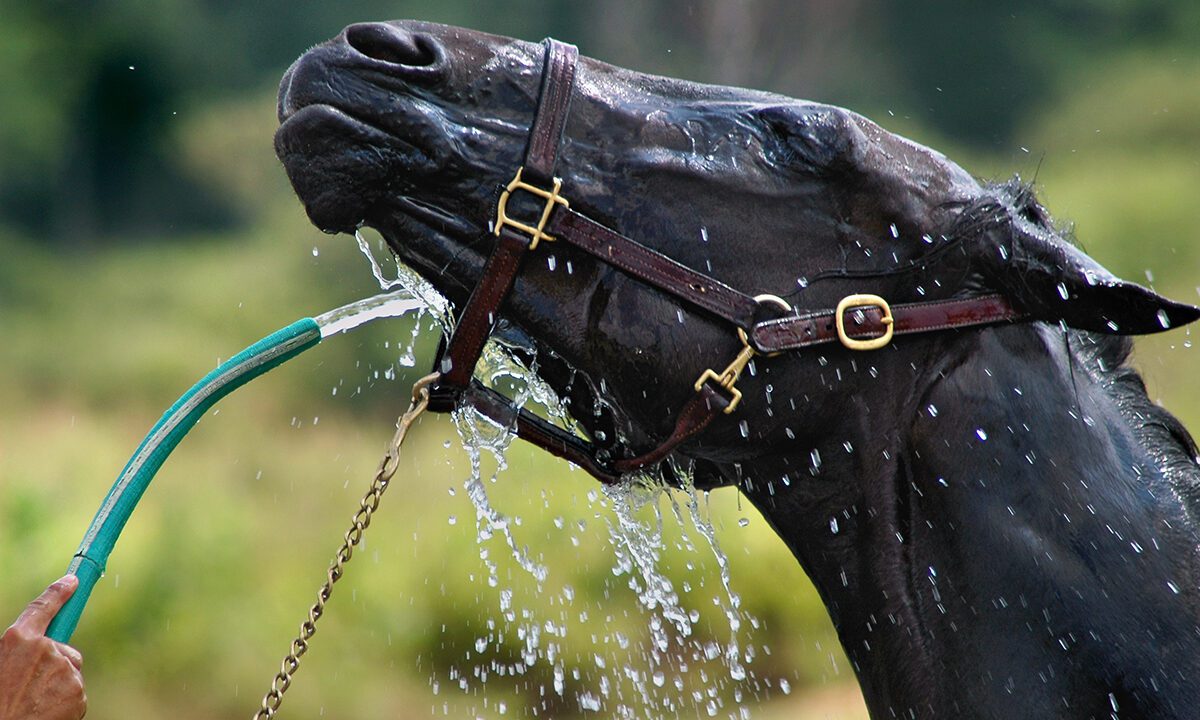Clinical side effects of heat stress include dehydration and electrolyte disturbances, muscle and kidney damage,decreased blood flow to the gastrointestinal tract causing Colic and allowing bacteria to “leak” into the bloodstream which predisposes to endotoxamia and multi organ failure. Reduced cerebral blood flow causes swelling and neurological damage, clinically this manifests as a change in behaviour with irritability or depression being seen early in the disease process.
Early recognition of heat stress before it progresses to severe disease and multi-organ failure is critical in our Australian environment. Performance horses that compete in the heat of the day and over long distances or for a prolonged time are at the most risk for example Endurance and eventing, usually the riders and trainers of these performance horses will be more aware of and take steps to reduce this risk. Heat stress is recognised to occur in all horses from pony club events to thoroughbred racing. The unfit pony club horse that is expected to compete, even at low levels, over a day or more in hot conditions is susceptible to a myriad of exercise and heat related conditions if not managed well.
Adequate conditioning and consequent adaptation of body thermoregulatory mechanisms will reduce the risk. Good nutrition and access to clean water and salt will also protect the horse from the side effects of working in high temperatures. A hind gut full of roughage(grass/hay/chaff) provides a valuable source of energy, fluid and electrolytes. Diets high in grains or easily digestible energy will increase the risk of overheating. Most event planners will change the event structure and even cancel in high risk weather situations. The individual trainer/rider need to be aware of high risk weather situations and change training times and lengths accordingly.
The use of electrolyte supplements in hot humid environments is recommended, however incorrect usage or overdosing can cause a range of side effects. Adequate roughage and fresh water intake are critical before these supplements are used. If in doubt contact your Veterinarian or a recognised equine nutritionist to assess the daily requirements, each individual horse and situation will be different.
Written by Dr Jo Holt

